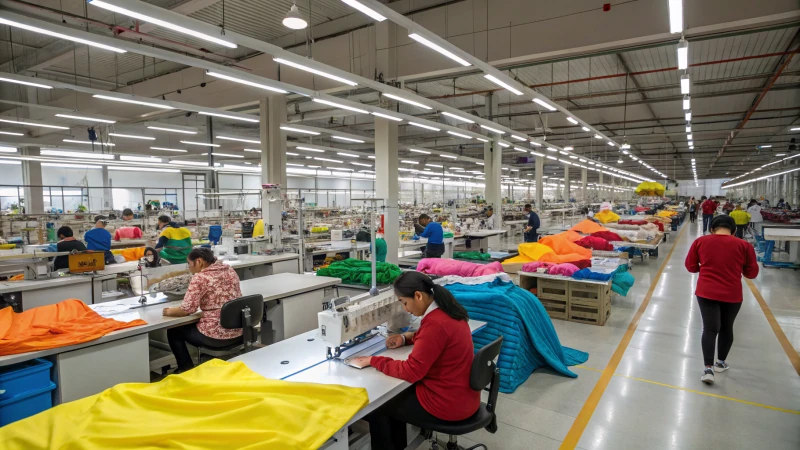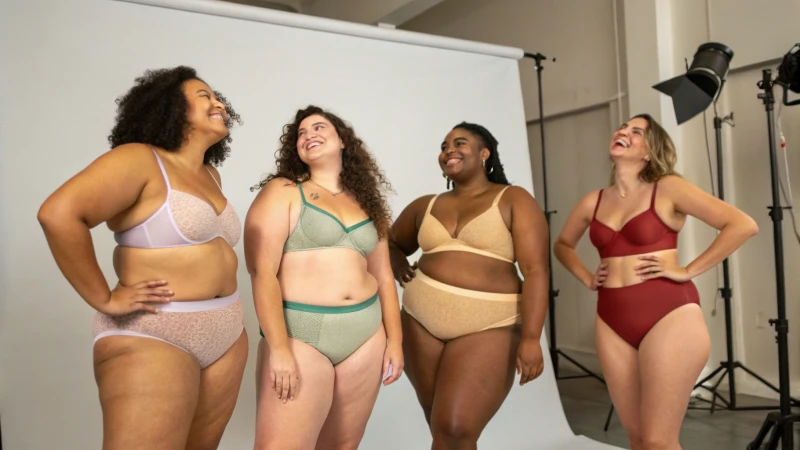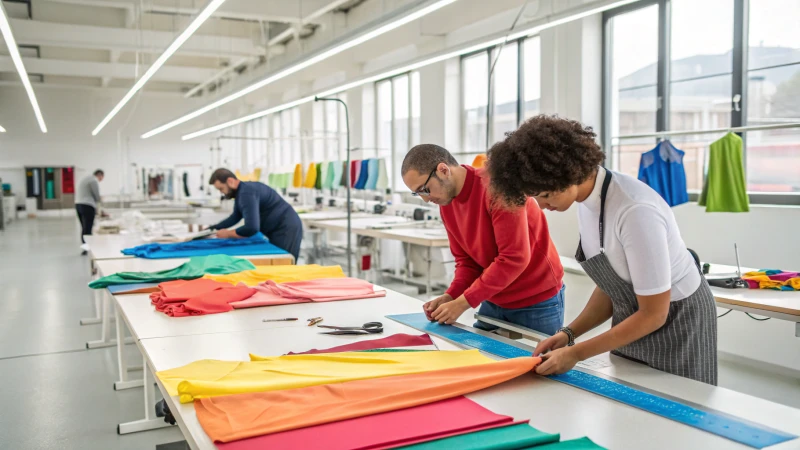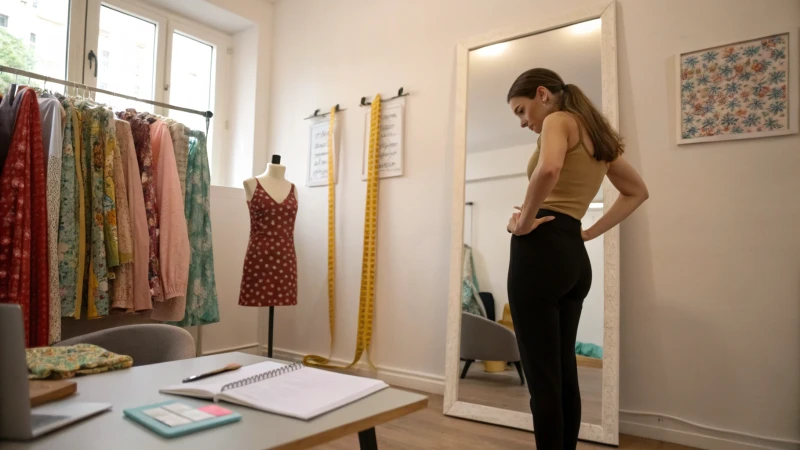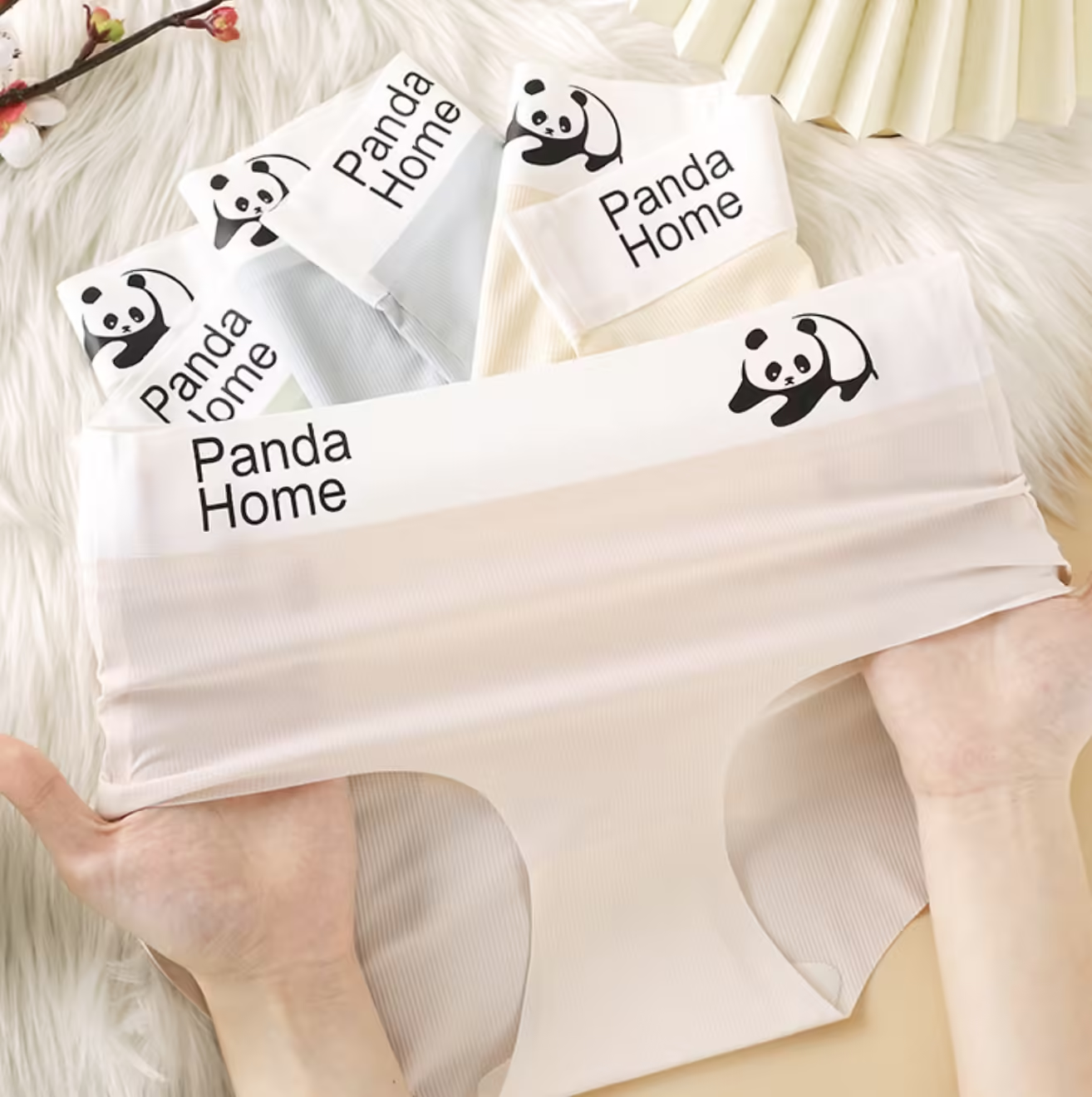
Have you ever wondered if your underwear could tell a story? It might even show your heritage! These small pieces of clothing hold a lot of potential. They might surprise you by expressing your culture and background. Really, the idea is fascinating.
I use traditional patterns to weave cultural identity into underwear designs. Culturally meaningful colors help show these identities. Local artisans work with me to create every piece. Each piece shares a real story.
These ideas are just the beginning. I remember my first exploration of this concept. I dove into specific techniques and examples. This opened up a whole new world. It's like unlocking a treasure chest full of creativity. You are maybe ready to take this journey. Keep reading. Discover how these ideas transform into vibrant, culturally-rich designs. These designs resonate with people from all walks of life. They really connect with everyone.
Traditional patterns enhance cultural identity in underwear.True
Traditional patterns are unique to cultures and can reflect heritage.
Collaborating with local artisans decreases authenticity.False
Local artisans bring authentic cultural elements to designs.
How Do Traditional Patterns and Textiles Influence Modern Design?
Do you ever become enchanted by a fabric that softly tells stories from long ago?
Traditional patterns and textiles tell cultural stories. They combine heritage with modern design. They influence color choices, fabric selection and fashion stories. They encourage appreciation of culture. They inspire new ideas in today's design.
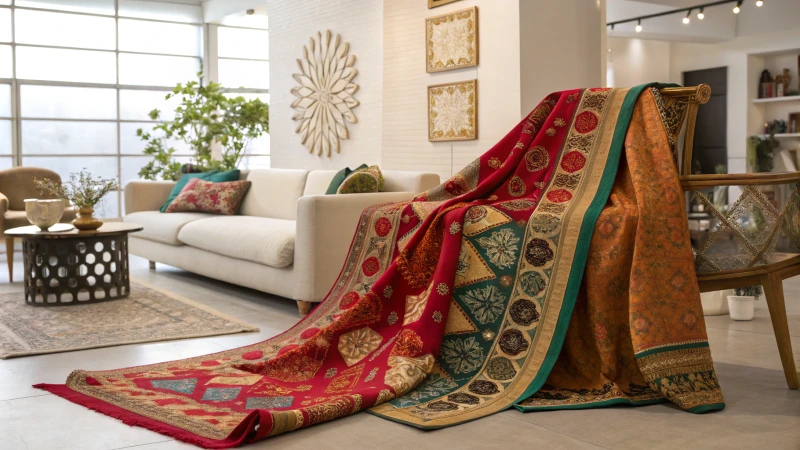
Cultural Importance in Fashion
I remember visiting a small market during my travels. I discovered a colorful batik piece that danced with colors and stories. Traditional patterns like these aren't just pretty; they are full of cultural stories. Designers use them to share tales1 through their collections. These patterns show the history, beliefs, and values of different communities.
Using these elements in modern design creates a conversation between the past and present. Fashion lovers find a deep connection to the clothes they wear.
Impact on Modern Design Practices
Traditional textiles provide a treasure chest of ideas for modern fashion. Designers use these cultural patterns to create unique collections. People today really want authenticity and fresh trends.
Table: Traditional Patterns in Global Fashion
| Region | Traditional Textile | Modern Application |
|---|---|---|
| Africa | Kente | Urban streetwear |
| Southeast Asia | Batik | High fashion collections |
| South America | Poncho | Runway fashion with a twist |
Working with Local Artisans
There is magic in collaborating with local artisans. Their skills keep designs genuine, supporting sustainable practices and local communities. Such partnerships preserve traditional craftsmanship2. Designers create exclusive collections that resonate globally but remain true to their origins.
Importance of Colors and Fabrics
Traditional textiles often burst with colors linked to cultural values and events. I remember a festival where the bright reds meant prosperity. Designers use these colors to create emotional ties and celebrate important occasions.
Materials like silk or wool, woven in specific patterns, have meaning beyond their beauty. They convey cultural significance3. The feel and texture of these fabrics really impact the overall experience of the design.
Respectful Functionality
Designers need to respect cultural norms when using traditional textiles in modern clothes. This respect shows in styles that honor modesty or adaptability. Clothing should be beautiful and functional within its cultural context. Thoughtful design strengthens cultural ties and may really promote global understanding.
Batik patterns are used in high fashion collections.True
Batik is a traditional textile from Southeast Asia often seen in high fashion.
Red symbolizes prosperity in many Asian cultures.True
Red is commonly associated with prosperity and good fortune in Asia.
How Can Colors Reflect Cultural Significance in Fashion?
Have you ever thought about how the color of your favorite shirt might reveal a story that crosses continents and lasts for centuries?
Colors in fashion show cultural importance. They capture historical, religious and social meanings unique to each culture. Designers use color to tell these stories. They add symbolic depth to garments. Emotional resonance increases through these colors.
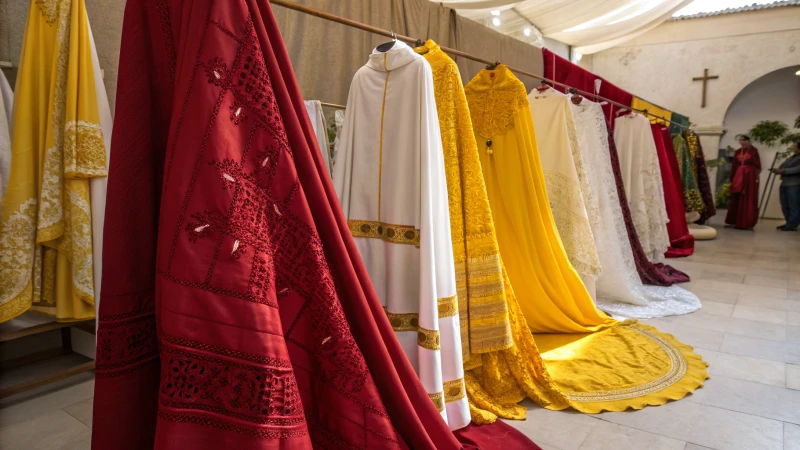
Cultural Symbolism in Colors
Wearing a crisp white shirt brings a feeling of elegance, like preparing for a summer wedding. In Western fashion4, white represents purity and romantic events. However, in Eastern cultures5, white symbolizes mourning. It's truly fascinating! Red, my favorite lucky color, stands out. I wore a red dress for my graduation and felt bold and strong. In China, red means luck and celebration. In Western cultures, red might signify passion or possibly danger.
| Color | Western Meaning | Eastern Meaning |
|---|---|---|
| White | Purity, Marriage | Mourning, Death |
| Red | Passion, Danger | Luck, Celebration |
The Influence of Religion
Religious beliefs often color our worlds with vivid meanings. Visiting a Hindu temple, I saw priests in vibrant saffron robes - what a striking sight! In Hinduism, saffron stands for purity and spirituality. Another time, an Islamic friend gave me a green prayer rug. It helped me realize how green represents paradise in their culture. Designers who honor these beliefs often use such colors to celebrate cultural traditions.
Social and Historical Contexts
Remember in history class how purple was once so rare it was reserved for royalty? Its dye was expensive during the Renaissance. Today, wearing purple suggests luxury and sophistication. Black has a fascinating history too; from Victorian mourning clothes to today’s symbol of sleek elegance.
Modern Interpretations and Collaborations
Designers act like cultural ambassadors now, blending traditional colors with modern ideas. I saw a collection with traditional African patterns6 paired with vibrant colors. It felt like a bridge between worlds - honoring heritage while embracing contemporary style.
Fashion brands are not just selling clothes; they tell stories through colors that deeply touch us. By understanding the history and symbolism of these colors, designers craft connections that speak not only to our eyes but also to our hearts.
White symbolizes purity in Western fashion.True
In Western cultures, white is traditionally linked to purity and weddings.
Red signifies mourning in Eastern cultures.False
In Eastern cultures, red is often associated with luck and celebration.
Why Is Collaborating with Local Artisans Important?
Have you ever thought about how a simple piece of clothing could tell a story? Working with local artisans does exactly this. Collaboration adds layers of cultural richness. These partnerships create authenticity in our products.
Collaborating with local artisans is crucial. It infuses products with true cultural authenticity. Artisans bring unique traditions to each creation. Local economies grow stronger through this partnership. Traditional crafts receive new life and protection. Brands tell richer stories by including cultural heritage. This approach supports sustainable practices, too.
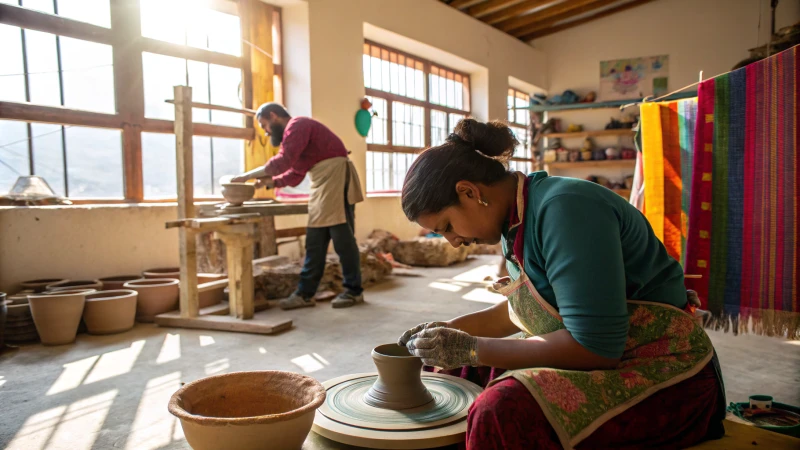
Cultural Authenticity and Storytelling
I started working with local artisans and felt amazed by the stories each craftsperson shared. Their hands pass down tradition through generations. My products include their unique craftsmanship. I do not just offer items; I offer a piece of rich cultural heritage. Every stitch tells a story, and every pattern whispers the past. This real touch changes my connection with customers who seek more than a simple purchase—they want a meaningful experience.
Economic Impact and Community Support
I visited a small village where our collaboration created much-needed jobs. Seeing how my partnership helped local economies felt wonderful. Paying fair wages kept resources in the community, supporting lasting growth. It’s about more than business; it's about lifting up communities. Every purchase aids a bigger cause.
| Benefits of Collaboration | Description |
|---|---|
| Economic Growth | Boosts local job creation and financial stability. |
| Cultural Preservation | Supports traditional crafts and skills. |
Sustainability and Eco-Friendliness
I care deeply about sustainability, aligning perfectly with artisans using eco-friendly materials that match my values. Each product respects the environment, attracting consumers who care about their ecological impact. Together, we're really reducing our footprint to meet the growing need for sustainable products in fashion.
Unique Craftsmanship and Innovation
Working with artisans means I see their amazing skill as they blend traditional methods with modern design elements resulting in unique offerings that stand out in the market.
The innovation from these collaborations always surprises me—it isn’t just about function but creating something unique that showcases creativity and skill within each item.
Building Long-Term Relationships
These collaborations develop into long-term partnerships over time, based on respect and shared goals which strengthen them further. These relationships inspire constant innovation, elevate product quality, provide deeper cultural understanding, and enhance overall value for my brand and the artisans I work with.
Collaborating with artisans boosts local economies.True
Partnerships create jobs and ensure resources stay within the community.
Artisan collaboration hinders product innovation.False
Artisans blend traditional techniques with modern designs, fostering innovation.
What Are the Benefits of Limited-Edition Collections for Cultural Events?
Picture stepping into an event. Excitement fills the room because of a collection everyone discusses. This energy comes from limited-edition collections at cultural events.
Limited-edition collections generate excitement through exclusivity. They encourage cultural appreciation and prompt quick action due to a sense of urgency. These collections connect with the community in meaningful ways. They skillfully combine cultural heritage with marketing strategies to increase brand visibility.
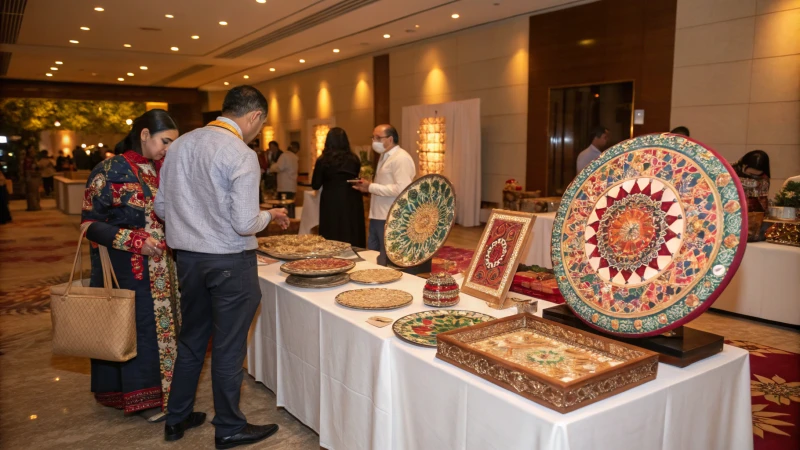
Driving Consumer Excitement
Limited-edition collections capitalize on the human desire for exclusivity and rarity. Knowing a product won't be available forever excites people. I remember feeling thrilled when I grabbed my first limited-edition item. It's very exciting! Limited editions stir this excitement, urging us to act fast and join something exclusive. We rush before they disappear. This method raises sales and lifts a brand's image.
| Benefits | Description |
|---|---|
| Exclusivity | Limited stock creates a sense of urgency, making items more desirable to consumers. |
| Cultural Appeal | Reflects cultural significance, attracting attention from culturally conscious audiences. |
| Brand Loyalty | Fosters a community of dedicated followers who anticipate future exclusive releases. |
Valuing Cultural Heritage
Wearing something with a story or tradition feels really satisfying. When limited editions use traditional designs, colors, and fabrics, it feels like wearing history. Collaborating with local artisans adds authenticity and storytelling elements, showcasing craftsmanship while supporting local communities7. Supporting these crafts respects cultural traditions and teaches us the importance of preserving heritage.
Increasing Brand Visibility
Brands can change quickly by launching limited editions during cultural events, offering them a platform to reach broader audiences. Social media becomes a stage for these collections through strategic campaigns and influencer partnerships, ensuring the collection resonates widely. Brands become leaders who understand culture and values by positioning themselves as culturally aware8 leaders in their industry.
Building Community
Cultural events provide shared experiences that are often community-centric. Limited editions connected to these events create a feeling of belonging among us consumers. They are not just products but stories and experiences we share, strengthening our connection with the brands.
Economic Effects
The scarcity model often means brands ask for higher prices, improving profits while keeping a high-end image. Aligning collections with cultural events attracts new audiences9 who value culture and exclusivity. This not only elevates sales but also secures the brand's reputation in various markets.
Limited-edition collections boost brand prestige.True
Exclusivity creates urgency, increasing sales and elevating brand status.
Cultural events do not impact brand visibility.False
Cultural events offer a platform for brands to reach wider audiences.
Conclusion
Incorporating cultural identity into underwear designs involves using traditional patterns, meaningful colors, and collaborating with local artisans to create authentic, vibrant collections that celebrate heritage and promote sustainability.
Discover the deep stories behind traditional patterns and how they convey cultural heritage. ↩
Explore why partnering with artisans is crucial for authentic and sustainable fashion design. ↩
Understand the importance of fabric choice in conveying cultural messages in design. ↩
Explore how different colors are perceived in Western cultures and their significance in fashion design. ↩
Discover the traditional meanings of colors in Eastern cultures and how they influence fashion trends. ↩
Learn about the significance of traditional African patterns and how they are used in contemporary fashion design. ↩
Learn why collaborating with local artisans enhances authenticity and supports community economies. ↩
Explore how cultural awareness in branding builds a positive image and attracts diverse customers. ↩
Find out how exclusive products help in capturing new market segments. ↩



